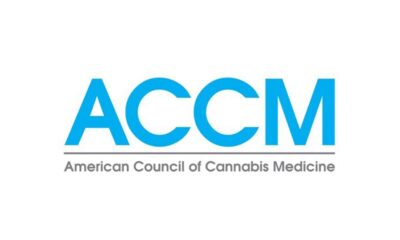RBC Capital Markets initiated coverage on Compass Pathways (NASDAQ: CMPS) with an “Outperform” rating on Tuesday, citing the potential for $2.3 billion in peak revenues from its lead psilocybin-based therapy program.
In a research note shared with Green Market Report, RBC analyst Leonid Timashev set a $23 price target on Compass shares, representing more than 216% upside from Tuesday’s closing price.
Timashev pointed to the company’s upcoming Phase 3 clinical trial readout for its COMP360 psilocybin formulation in treatment-resistant depression, which is expected in the fourth quarter of 2024.
“We see a high likelihood of a positive (Phase 3) readout in (the fourth quarter of 2024),” Timashev wrote. “We believe the recent cooling of the psychedelic space has created a particularly attractive buying opportunity.”
The analyst noted that while questions remain around commercialization and intellectual property protection, the current entry point looks appealing given the revenue potential.
Timashev cited the “substantial body of evidence” supporting psilocybin’s efficacy in mood disorders from academic studies and Compass’ own clinical data.
Compass’ studies “have confirmed the efficacy of 25 mg psilocybin with a highly meaningful ~7 pt MADRS (a scale used to assess the severity of depression) change over a 1 mg inactive control dose, and showing dose dependent efficacy as well; further, the drug has also reproduced the efficacy in both monotherapy and adjunctive settings,” Timashev wrote.
The RBC initiation comes as Compass prepares for potential regulatory approval and commercialization. The company recently appointed Lori Englebert as chief commercial officer to lead those efforts, the analyst noted.
While bullish overall, Timashev acknowledged risks including potential safety issues and regulatory hurdles given psilocybin’s controlled substance status. Still, the analyst signaled optimism.
“While there are no approved psychedelic therapies, we believe the FDA has been moving towards developing a clear regulatory path – including publishing written guidance, which we think CMPS’ development program adheres to closely,” Timashev wrote.
The report addressed a recent setback in the psychedelic space, when a Food and Drug Administration advisory committee voted against recommending approval for Lykos Therapeutics’ MDMA psychedelic therapy. However, Timashev drew distinctions between that case and Compass’ approach.
The analyst believes “(key opinion leaders) and the FDA remain open to a psychedelic therapy provided the data is strong, and believe a more comprehensive data package from COMP360 can enable an approval.”
Timashev noted that while the space is becoming more crowded, Compass remains “among the most advanced psychedelic programs.”
RBC’s survey found “significant interest” among patients and physicians in psychedelic therapies, with 38% of patients saying they would likely ask their doctor about such treatments if approved.
Timashev also drew parallels to Johnson & Johnson’s Spravato, which has approached $1 billion in sales despite requiring “a new treatment paradigm,” suggesting a potential blueprint for COMP360’s commercialization.
“We acknowledge that JNJ has extensive marketing muscle to resource a new branded launch, but we have seen successful smaller biotech launches in mood disorder markets recently (ITCI’s Caplyta, AXSM’s Auvelity) which give us confidence CMPS can succeed,” the analyst wrote.
Compass reported $262.9 million in cash as of its latest earnings report, which it projects will fund operations into 2026.
The company’s stock opened Monday at $7.23. Shares are down nearly 20% over the past 12 months amid a broader biotech selloff.

 California Cannabis Updates1 year ago
California Cannabis Updates1 year ago
 Breaking News1 year ago
Breaking News1 year ago
 best list1 year ago
best list1 year ago
 Business1 year ago
Business1 year ago
 Business1 year ago
Business1 year ago
 cbd1 year ago
cbd1 year ago
 Bay Smokes1 year ago
Bay Smokes1 year ago
 autoflower seeds1 year ago
autoflower seeds1 year ago














































